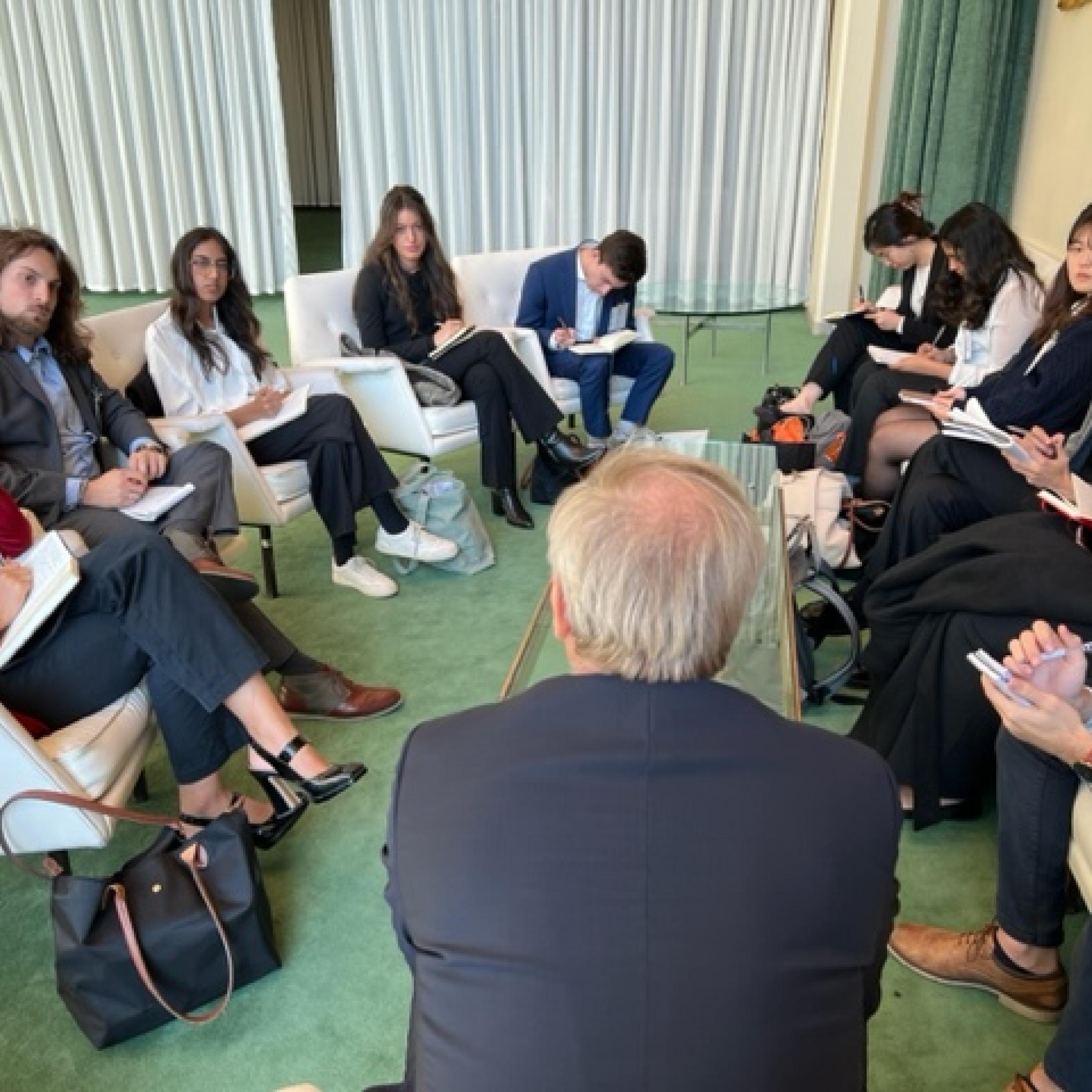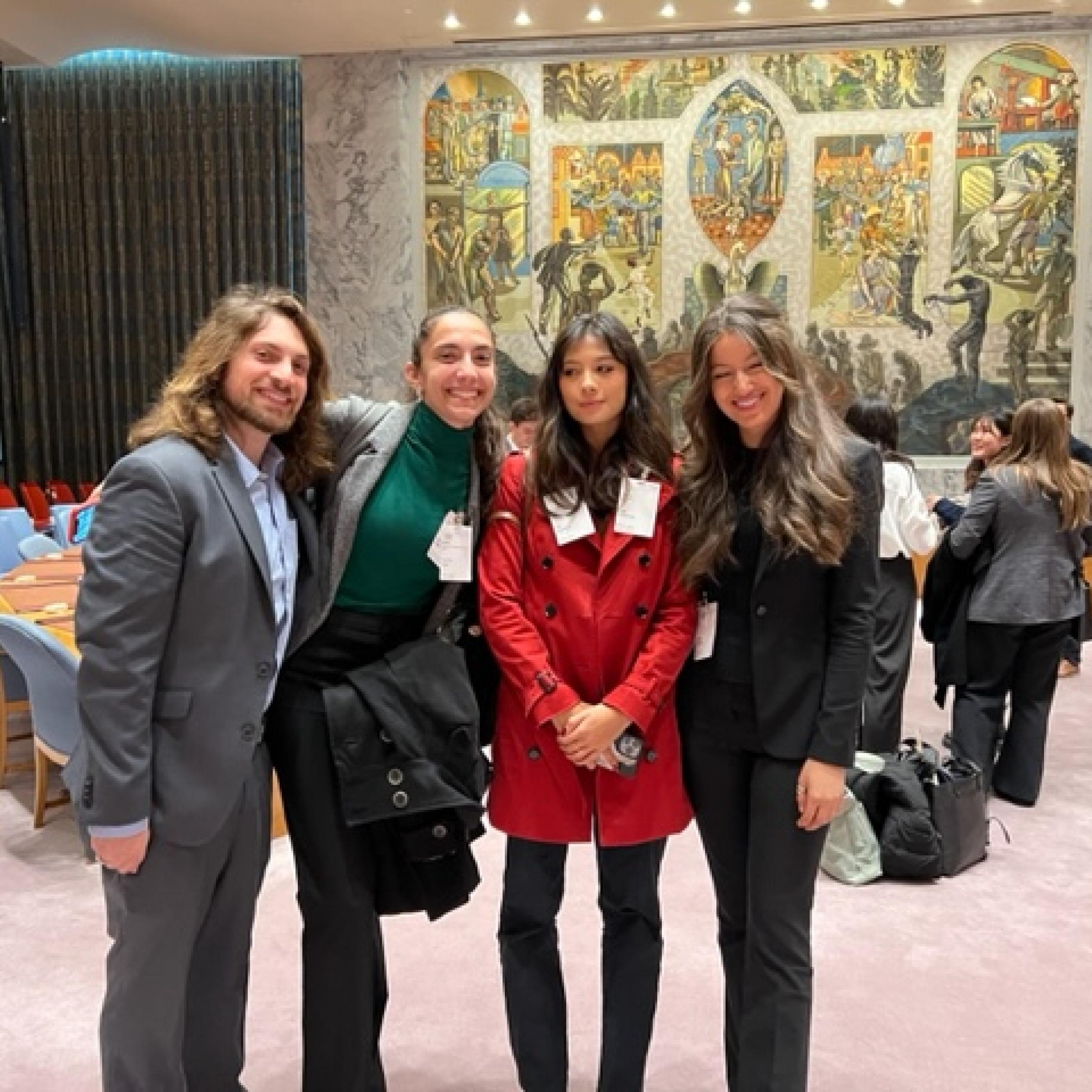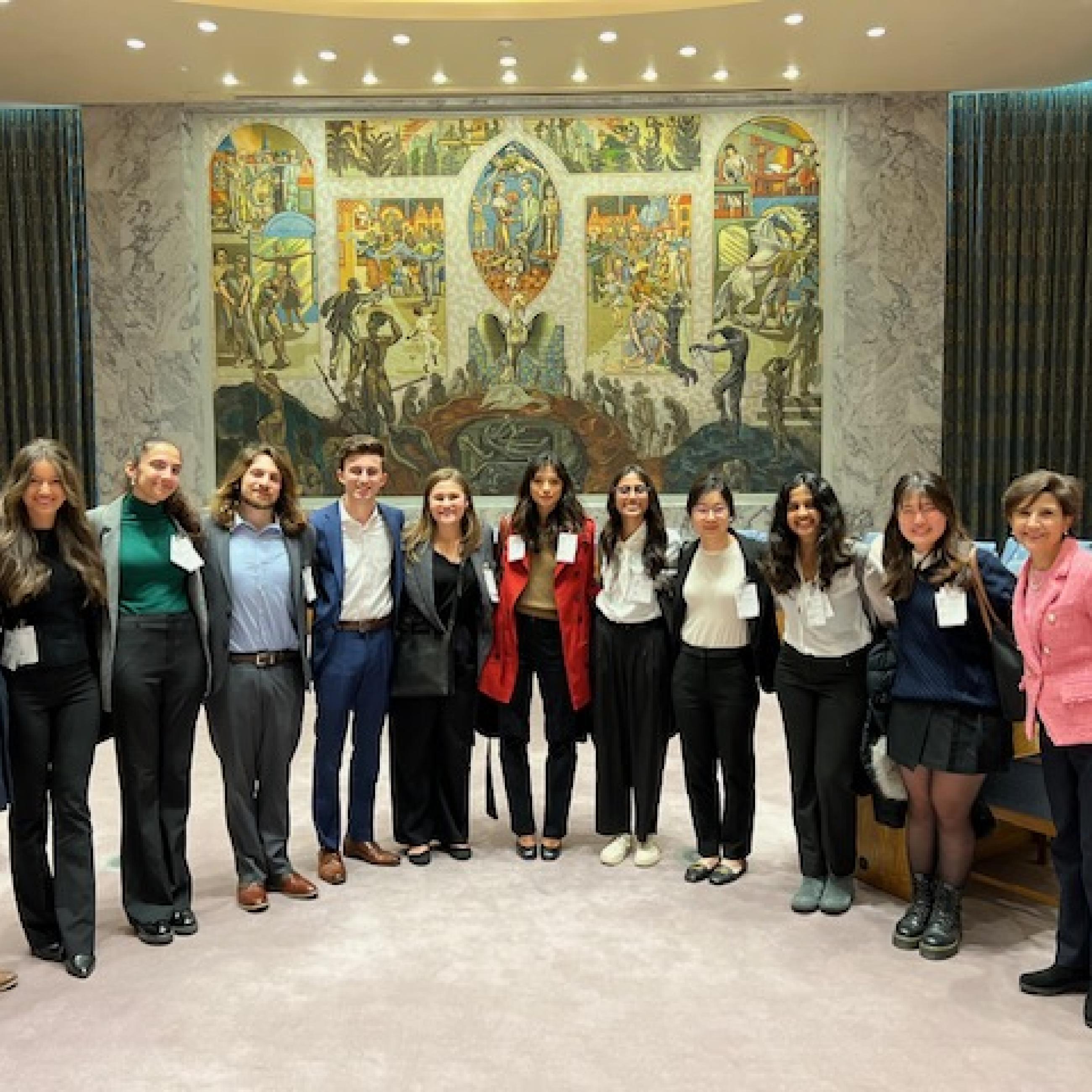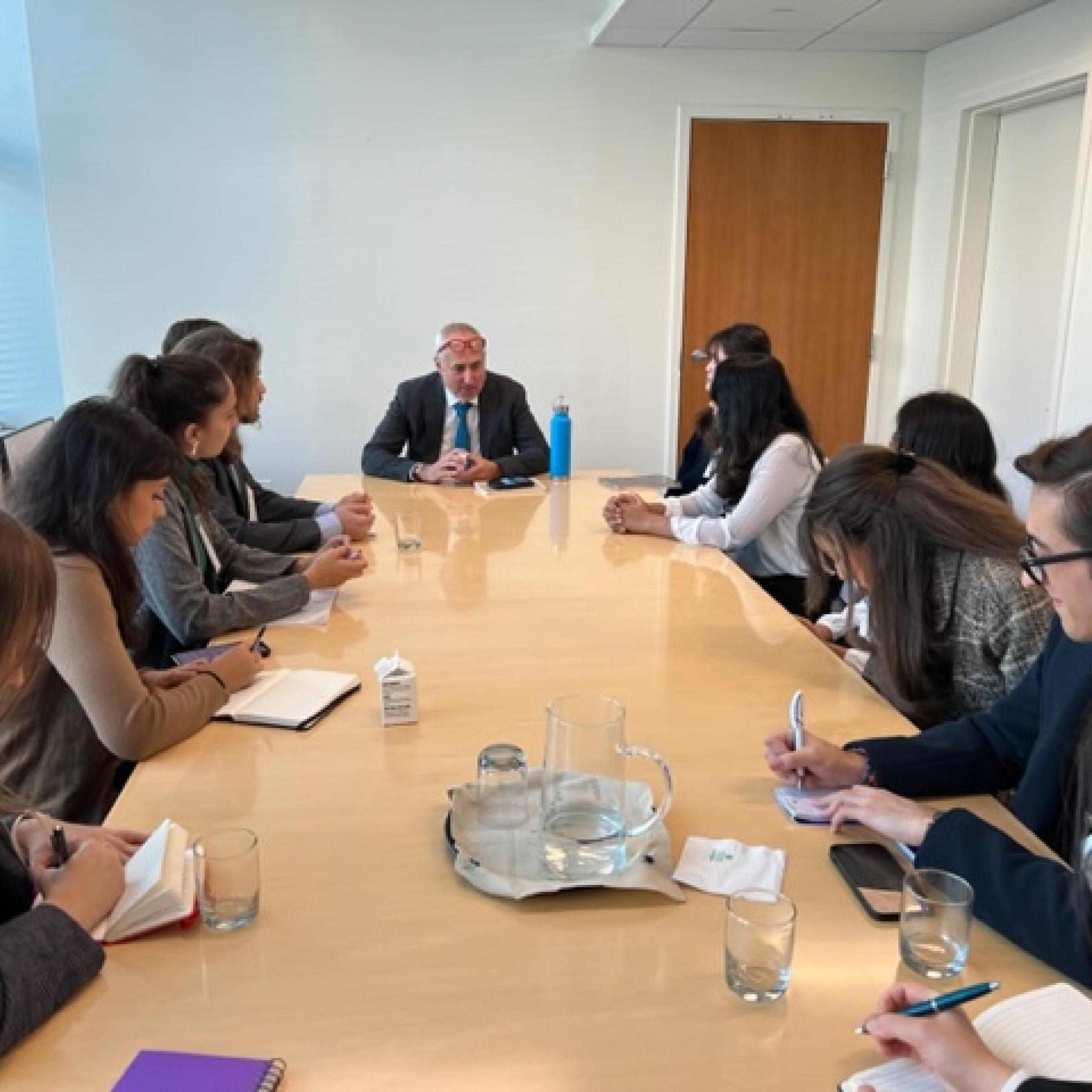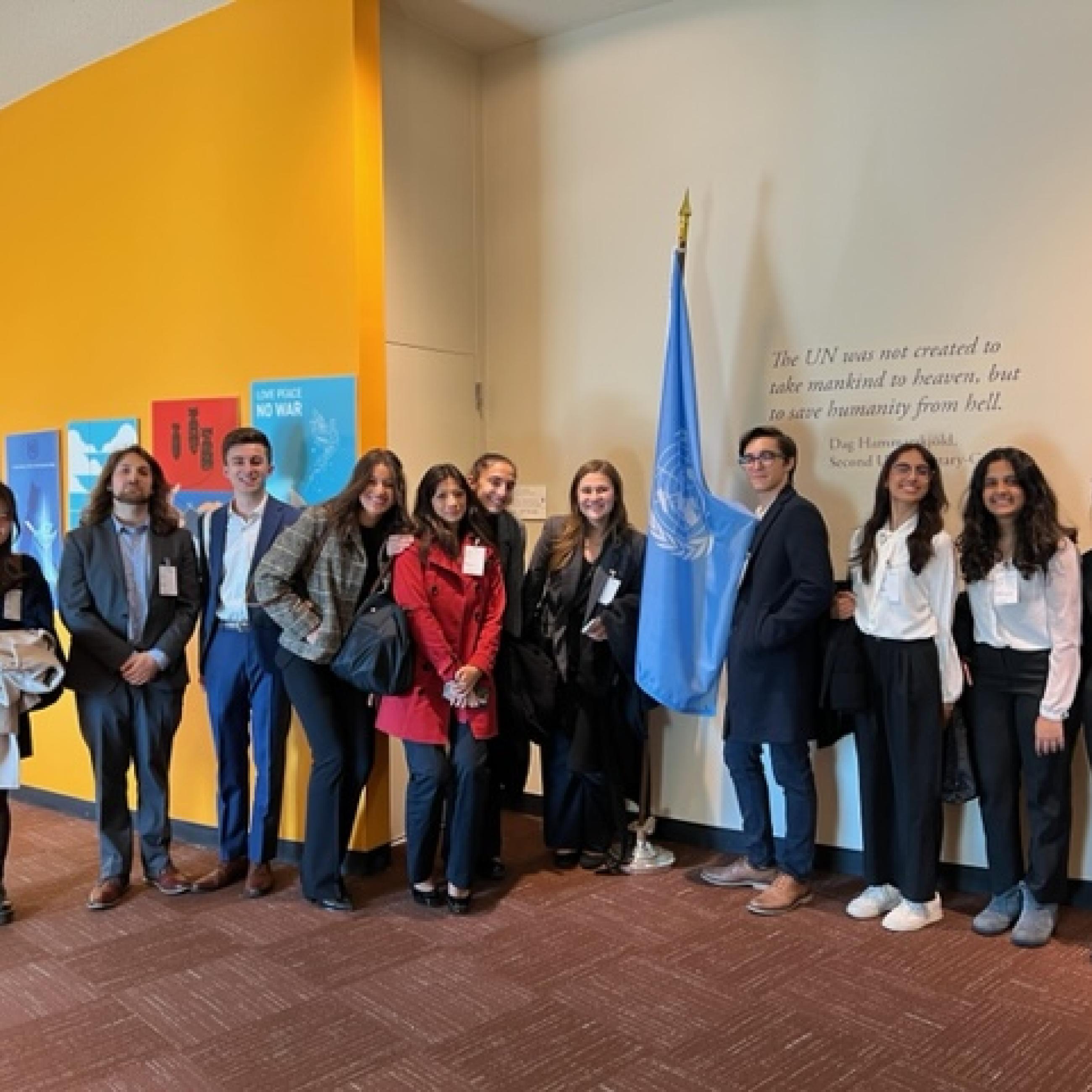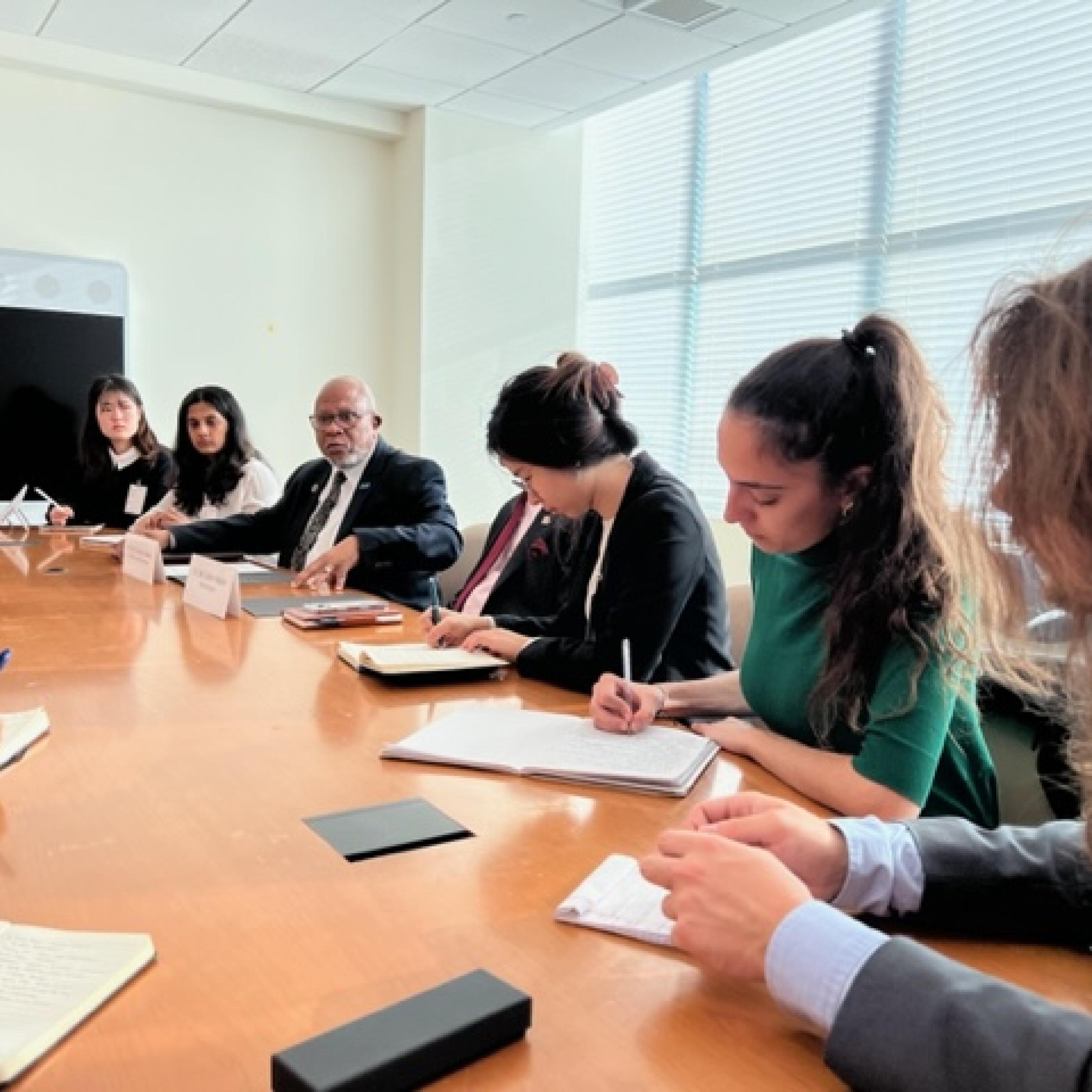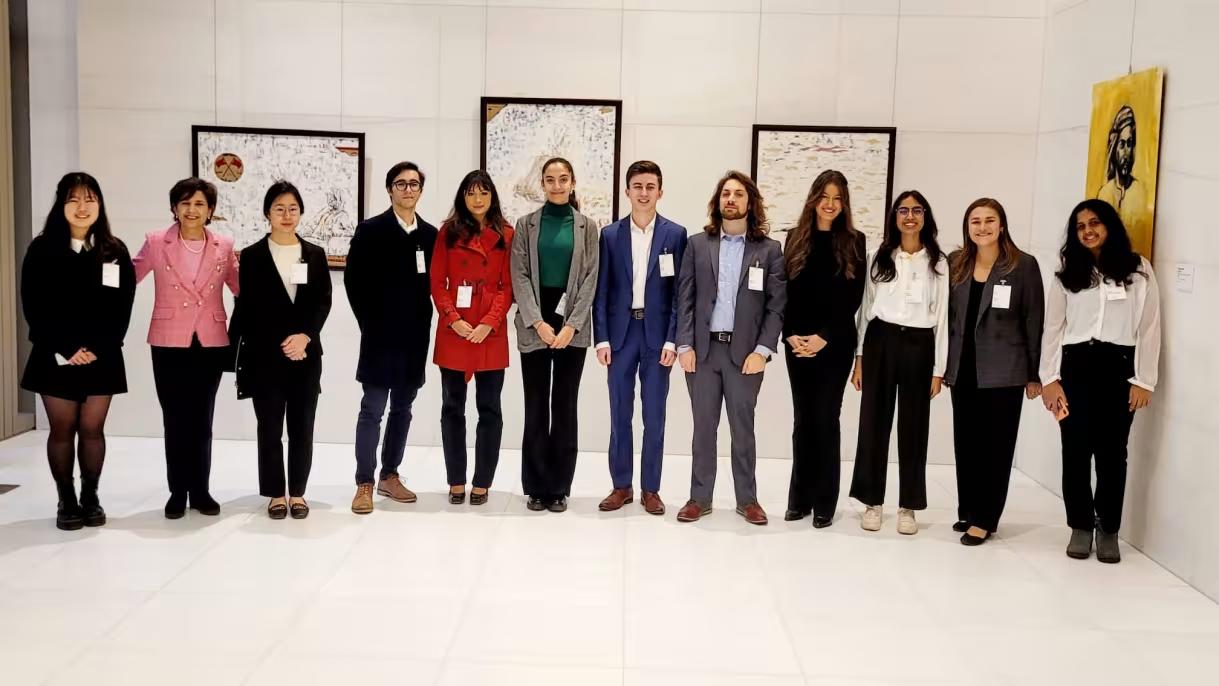

SPIA Students Take High-Level Meetings at the United Nations
Students in Amal Mudallali’s “Multilateralism and Foreign Policy: Case Study of Outer Space Policy” course visited the United Nations earlier this month for a series of meetings with high-level U.N. officials, including the president of the General Assembly.
UNGA President Dennis Francis, Trinidad and Tobago’s ambassador to the U.N., briefed the students on his agenda for the 78th General Assembly session and noted that the organization would be celebrating the 75th anniversary of the Universal Declaration of Human Rights, which he called “the Magna Carta of human rights.”
“Hate speech must stop,” Francis told the students. “Violation of human rights lies at the core of stability of society. Human rights are linked to international peace and security.”
Francis also discussed peace and security and emphasized the role of the U.N. in rebuilding trust between the Global South and the Global North.
Student attendee Gigi Schadrack said that Francis posed a compelling question.
“‘If not the U.N., then who?’” she recalled. “Indeed, the world would be significantly disadvantaged without a platform for 193 countries to engage in dialogue aimed at creating impactful solutions.”
Afterward, Francis posted a note to social media: “I had an inspiring and refreshing meeting with students from @PrincetonSPIA. In this time of crisis, we need fresh thinking, and it was captivating to hear their views on current crises.”
The students also met with Deputy Secretary General Amina Mohammad, who offered a wide-ranging briefing of the challenges that the U.N. and the world are currently facing. Noting that technology will shape the future, Mohammed described the U.N. as the global town hall for the global village and emphasized the importance of better explaining the complexity of the organization.
“A lot of times, an academic environment can make you feel detached from the real world as if the problems you are studying are mere intellectual exercises,” said student Marilena Zigka. “Coming back to campus, however, I feel that our discussions with high-level representatives — including the President of the General Assembly and the Deputy Secretary General — have helped me understand the true magnitude and urgency of the problems facing the world, while also motivating me to try and contribute to their solution post-graduation.”
Following their meeting with Francis, the students heard from Singapore’s ambassador to the U.N., Burhan Gafoor, who chairs the Forum of Small States. After that, they met with Christian Wenaweser, Lichtenstein’s ambassador, to discuss the Veto Initiative, which mandates that the General Assembly convene any time any of the five Permanent Members casts a veto. They then connected with Qatar’s ambassador, Sheikha Alya Al Thani, who chaired the Sustainable Development Goals (SDG) Summit political declaration during the 78th General Assembly. The ambassador told the students about the importance of that declaration and the challenges of negotiating it among the 193 countries during politically challenging times.
The students next met with U.N. spokesperson Stephane Dujarric, who invited them to attend his noon press briefing, and Olof Skoog, the European Union’s ambassador to the U.N., who described U.N. headquarters as “the diplomatic capital of the world” and the organization itself as “the mirror of the world.” That mirror, he said, is reflecting “existential challenges” such as the effects of the COVID-19 pandemic, the debt crisis, and the rise in poverty and conflict, all of which are imperiling the SDGs. Skoog also mentioned the paralysis of the Security Council, the rift between the North and South, and the EU’s commitment to a multilateral system.
At the students’ meeting with Izumi Nakamitsu, Under Secretary General for Disarmament Affairs, they learned more about advances in science and technology, and the U.N.’s challenges in governing them. Nakamitsu’s portfolio includes outer-space policy, and she discussed the U.N.’s desire to contain conflicts to Earth so that they do not extend to space. Further, she said, the issue of space debris needs to be addressed in order for the SDGs to be met.
The day concluded with a visit to the U.N. Security Council and General Assembly.
“Giving the students a firsthand experience of multilateralism in action at the U.N. was invaluable,” said Mudallali, a lecturer in public and international affairs. “I was very happy to see them interact with U.N. officials and ambassadors to put in practice what they have been studying during the semester. It was not a page in a required reading anymore, it had a human dimension, a real-life taste with real people working together, interacting on a daily basis to advance cooperation and peace. They saw it unfold in front of them. This is something you never forget. It leaves a lasting imprint on students’ minds that lecturing alone cannot accomplish.”
Schadrack agreed, noting the “extraordinary camaraderie” among the ambassadors resembled that of “lifelong friends collaborating in a close-knit environment.”
“The ambassadors' generosity in sharing their expertise highlighted the U.N.'s tireless efforts in addressing global crises, from geopolitical conflicts to climate change and poverty” she said. “This firsthand experience reaffirmed the significance of multilateralism taught in our classrooms, inspiring my pursuit of a career in diplomacy.”


